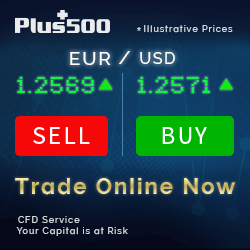Contract for differences are commonly called CFDs. In the financial world, CFDs are essentially contracts that promise that the buyer will pay the difference between an asset’s current assessed value and the asset’s contract value (the price of the asset at the time of the contract’s execution). If there is a positive difference, the buyer pays the difference and the seller makes a profit. However, if there is a negative difference between the contract price and the current market value price, then the seller pays the difference and a loss is assumed. One of the most alluring benefits to investing with CFDs is the ability to trade on margin. However, the generous margin terms also make contracts for difference quite risky. To better understand the concept of margin trading and CFDs as a whole, I will go into what exactly a margin is. [Read more…]
Opening a New Account to Trade CFDs
Contracts for differences are allowed in over a dozen countries in the world but come along with strict laws and limitations. In the United States for instance, the U.S Securities and Exchange Commission does not allow CFDs to be traded. However, for those who live in countries where trading CFDs is an option, opening a CFD account is much easier to understand and complete than the complex laws and regulations that often go into the the process itself. [Read more…]
Online CFD Trading
 Trading Contract For Difference (CFD) instruments online represents what is quite possibly one of the best purposes ever conceived for making use of the power of the modern personal computer and high-speed Internet connections that are almost universally available.
Trading Contract For Difference (CFD) instruments online represents what is quite possibly one of the best purposes ever conceived for making use of the power of the modern personal computer and high-speed Internet connections that are almost universally available.
Starting a CFD trading business is fast and simple, offering multiple benefits when compared to other sources of income or other entrepreneurial ventures. [Read more…]
What is CFD?
 CFDs are one of the newest vehicles for financial trading and speculation available. Created only about 20 years ago, CFDs have quickly become one of the most popular choices for traders around the world for a wide variety of reasons. These include relatively low cost, quick and easy transactions, and the ability to trade CFDs on margin. [Read more…]
CFDs are one of the newest vehicles for financial trading and speculation available. Created only about 20 years ago, CFDs have quickly become one of the most popular choices for traders around the world for a wide variety of reasons. These include relatively low cost, quick and easy transactions, and the ability to trade CFDs on margin. [Read more…]



